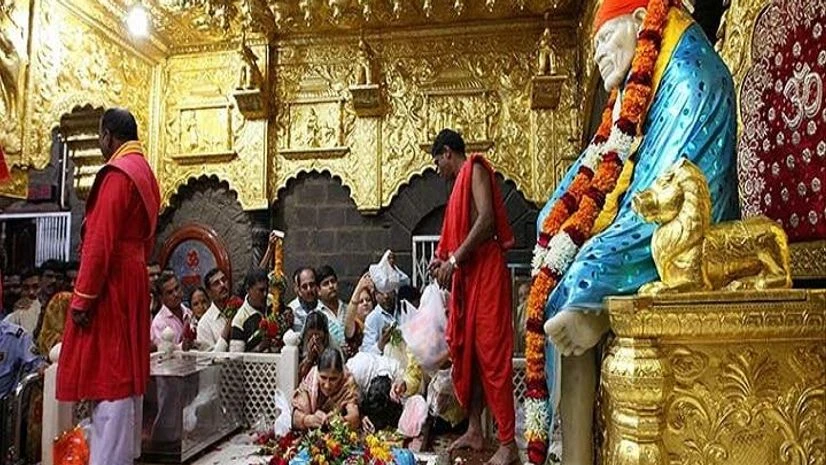Maharashtra Mandir Mahasangh has proposed a dress code called 'vastra sanhita' for temples, which has already been adopted by over 100 temples and shrines in the state. This code prohibits devotees visiting the temples from wearing clothes that are considered 'indecent'. The Mahasangh is also advocating for a ban on the sale of liquor and meat within a 500-meter radius of temples and shrines.
According to Sunil Ghanwat, the coordinator of the Maharashtra Mandir Mahasangh, their main concern is with what type of clothes devotees should not wear, rather than specifying what they should wear. Ghanwat clarified that they have no issue with devotees wearing modern outfits like trousers and shirts, as they consider it appropriate for the times.
The prohibited articles of clothing include revealing, tight-fitting, and torn clothes. Ghanwat emphasised that their aim is to maintain the sanctity of the place of worship and prevent people from coming to temples inappropriately dressed and creating content for social media. He stated that temple visits are not the same as conventional tourism, and they want to ensure that the sanctity of the temples is preserved.
The Mahasangh, which includes temple trustees, managers, priests, advocates, and activists, has already convinced 131 temples in Maharashtra to adopt their dress code, according to a report by India Today.
The organisation was established in February in Jalgaon and launched its dress code campaign in May from Nagpur after objections were raised by some devotees regarding the dress code imposed by the famous Tuljabhavani Temple in Maharashtra's Dharashiv district. The Mahasangh aims to implement the dress code in a significant number of temples by the end of the year.
Ghanwat, who is also associated with the right-wing Hindu Janajagruti Samiti (HJS), pointed out that similar rules exist for temples, churches, and gurdwaras in states like Goa, Uttarakhand, and in the southern part of India. He compares it to professionals like doctors, policemen, and advocates who wear uniforms or follow a prescribed dress code. He questions whether people follow a dress code when visiting five-star hotels.
More From This Section
In addition to the dress code, the Mahasangh has also demanded a ban on the sale of meat and liquor within a 500-meter radius of temples to maintain their sanctity, particularly in pilgrimage centers like Pandharpur, Dehu, and Alandi, which are revered by members of the Vaishnavite Warkari sect. Ghanwat claims that meat is being slaughtered and sold near some temples.
The India Today report added that when Ghanwat was asked about animal slaughter being part of rituals in certain shrines, he clarified that the Mahasangh has no objections to these traditions but opposes the commercial sale of liquor and meat near temples.
They are requesting a meat and liquor-free area of at least 500 meters and would welcome it if the pilgrimage centers revered by the Warkaris could become meat and liquor-free as well.
According to the Free Press Journals the Gopalkrishna Mandir at Dhantoli in Nagpur city, the Sankatmochan Hanuman Mandir at Belori in Saoner, the Shri Brihaspati Mandir at Kanholibara and the hilltop Durgamata Mandir at Manvta Nagar were some of the first temples to start imposing these new dress code from the end of May itself.
These shrines have placed notices at the entrance of every temple asking devotees to adhere to their clothing rules and maintain decorum of the temples by following the “Indian culture.”
The decision regarding the dress code was announced during the Maharashtra Mandir Mahasangh meeting on February 4 and 5 where trustees from temples across the states gathered together.

)
